Possible Duplicate:
Overriding equals and hashCode in Java
All,
I have defined my class and which to override equals() and hashCode () methods as well. But I have no idea of what specifically these methods should be implemented for my own class. Can anyone please shed some light on the implementation of these methods for custom classes?
